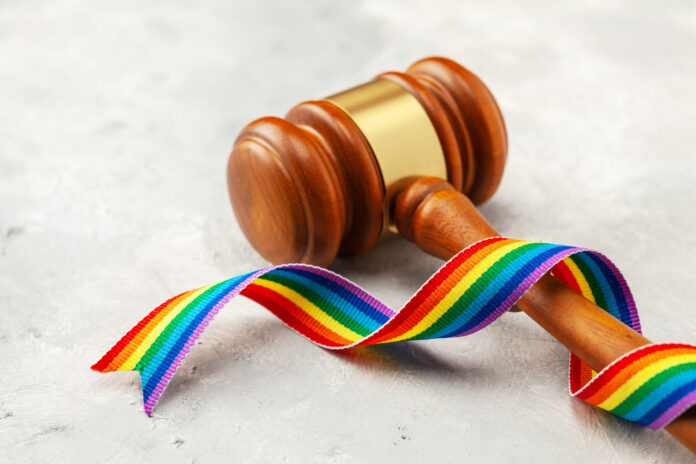It’s inspiring to see how openly LGBTQ+ professionals, government appointees and elected officials now take pride in being visible on the job. Many of them also reflect on the long road that brought us here — because understanding that history helps us see where we are now, and what we stand to lose in today’s political climate, especially amid Trump’s backlash.
Let’s take a simple but telling example: the legal profession.
Trump’s ongoing attacks on DEI (diversity, equity and inclusion) initiatives, particularly in law firms, could threaten the progress LGBTQ+ lawyers have made — impacting hiring, promotions or even the path to partnership.
While it might seem hard to believe today, discrimination against LGBTQ+ lawyers was very real not so long ago. In fact, a 2002 nationwide study found that only 1% of lawyers felt they could be out at work. Today that number is still only 4% — and among law students, just 9%. Back then, few lawyers dared to be out, especially since they had little to no power within the legal system.
But a handful of courageous legal professionals understood that real influence came from having a seat at the table. These early openly LGBTQ+ lawyers fought to claim that space. They joined bar associations, advocated for pro bono work in the LGBTQ+ community, mentored aspiring lawyers, and organized legal networking events focused on LGBTQ+ inclusion. They challenged large law firms to embrace — not block — diversity.
Perhaps most powerfully, they recognized that true authority in the legal world resides in the judiciary. So, they did the unthinkable: they ran for judgeships. Without the support of the legal establishment, they put themselves out there — and won. That act alone sent a clear message to both the legal and political systems: we are here.
Today’s LGBTQ+ lawyers stand on the shoulders of these trailblazers — people who risked their careers and livelihoods to make it easier for others to live authentically and openly. Those early lawyers, like Ann Butchart, Dan Anders and Abbe Fletman — who was a founding member of the Philadelphia LGBTQ Bar Association nearly 40 years ago — are our pioneers in the law profession.They knew one thing above all else: visibility is power.
Those early judges not only transformed the legal profession, but also helped pave the way for LGBTQ+ people to run for public office, lead legal organizations and claim space in the public sphere.
When I visit City Hall, I often look at the portraits on the wall of elected officials. I used to ask: Where are the LGBTQ+ faces? I wonder how many of our youth still ask that question today.
We must continue to instill pride and visibility in our community. Today, if you walk through City Hall, you’ll see several portraits of openly LGBTQ+ officials. That makes a powerful statement: We’ve arrived. But we should never forget: Everything we’ve achieved can be taken away.

